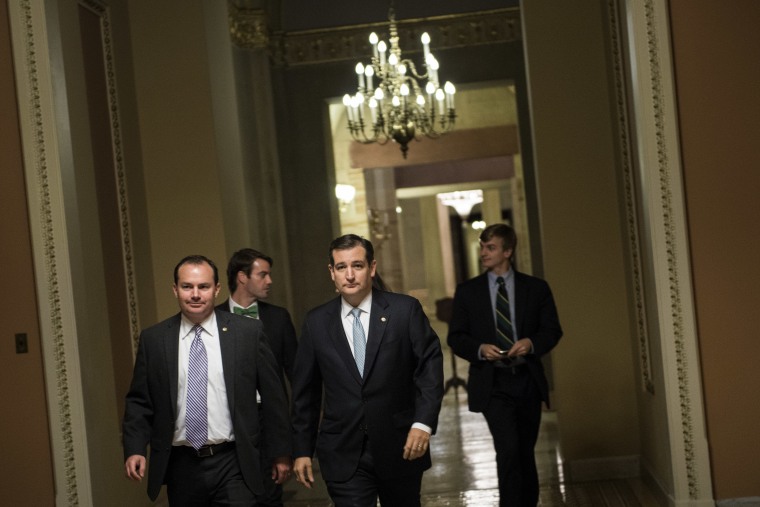It's been several days since the White House announced U.S. Attorney Loretta Lynch is President Obama's choice to serve as Attorney General, and so far, the administration's critics just haven't had much to say about her. The bigger fight seems to be about the calendar, not the nominee's qualifications.
What Republicans are eager to talk about, however, is when that might happen.
Top Republicans want Loretta Lynch's nomination to be attorney general be delayed until they are in charge of the Senate -- and are insisting that she divulge whether she supports the president's plan to act without Congress on a major immigration amnesty. Soon-to-be Majority Leader Mitch McConnell of Kentucky issued a statement Friday night saying her nomination should be considered "in the new Congress," and Saturday, Sens. Ted Cruz of Texas and Mike Lee of Utah also pushed for a delay.
"President Obama's Attorney General nominee deserves fair and full consideration of the United States Senate, which is precisely why she should not be confirmed in the lame duck session of Congress by senators who just lost their seats and are no longer accountable to the voters," the far-right senator said.
On Twitter, Cruz added, "Democrat senators who just lost their seats shouldn't confirm new Attorney General."
It's not a good argument. In 2006, senators confirmed a new Defense Secretary -- with bipartisan support, no less -- during a lame-duck session. In 1998, Republicans were comfortable impeaching a president during a lame-duck session, and some lawmakers who'd just lost their seats cast their votes. So why delay Lynch just for the sake of delay?
Apparently because Cruz and Lee oppose lame-duck sessions on a conceptual level.
I haven't seen this verified elsewhere, but The Hill reported that Cruz and Lee actually endorsed a letter calling for the cancellation of this year's post-election, lame-duck session altogether.
The simple fact remains that senators serve six-year terms, not five-and-three-quarter-year terms, Why should a senator be able to vote on a cabinet nominee after losing? Here's a good reason: because they're still senators.
The Cruz/Lee argument is that lawmakers who are "no longer accountable to the voters" should no longer be able to cast votes on Capitol Hill. But that's silly -- by the same reasoning, every member of Congress who plans to retire should also refrain from voting on bills and nominations since they won't be "accountable to the voters," either.
To be sure, it's not yet clear if the outgoing Democratic majority even intends to try to confirm Lynch before the new Congress begins in January. But those demanding a delay will need better arguments than the ones Cruz and Lee have come up with.
